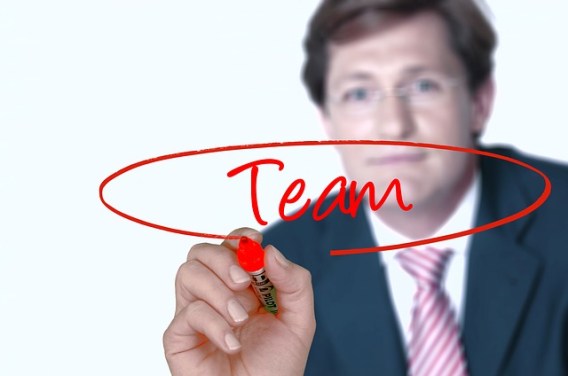Working with a team is a must if you want to be successful. The concept has been woven into our personal and cooperate life that we wouldn’t even question it. The concept is an easy one; we are stronger together than we are apart.
Hi and welcome back to BarrWorld.com, today we are looking at a side of teamwork that isn’t talked about much because it’s not supposed to work this way. We form teams to make us stronger but sometimes we have a hanger on, someone that isn’t pulling their weight. The technical term is Social Loafing and it is a serious problem when working in a group or a project.
Social loafing is the tendency to put less effort into a task when working as part of a group compared to working alone. When you’re involved in a group project, you can help it to function effectively if you know how to prevent, recognize, and correct social loafing. You might even recognize that YOU are the Social Loafer.
You can have everything in life you want, if you will just help enough other people get what they want.- Zig Ziglar
As a leader that needs to work with a variety of people in a team environment, we need to have some methods in place to keep our team members from becoming a social loafer.
 1. Decide if you need a team. Individuals naturally like the social and emotional benefits of being part of a team. On the other hand, studies show that some tasks like brainstorming actually produce better results when working alone. Set up teams only when you require more than one person to get the job done.
1. Decide if you need a team. Individuals naturally like the social and emotional benefits of being part of a team. On the other hand, studies show that some tasks like brainstorming actually produce better results when working alone. Set up teams only when you require more than one person to get the job done.
2. Limit the group size. The bigger the group, the greater the tendency for others to feel anonymous and go along for a free ride, while one or two individuals do most of the work. A good rule of thumb is to limit the maximum group size to five members or less.
3. Choose members carefully. Think about how different members can complement each other. Those with financial skills or creative talents may produce a better product together than they could independently. Personalities also matter.
“Individual commitment to a group effort–that is what makes a team work, a company work, a society work, a civilization work. –Vince Lombardi
4. Designate appropriate leaders. Wise leadership helps any group to function better. Be flexible about identifying co-leadership opportunities and other innovative arrangements.
5. Assign clear roles. Let each individual know what they are responsible for individually as well as collectively. Accountability is essential to successful groupings.
6. Establish ground rules. Head off potential misunderstandings by laying out the basic expectations. Provide details on goals and objectives, reporting relationships, and communication methods.
Coming together is a beginning. Keeping together is progress. Working together is success.” –Henry Ford
So how do you stop social loafing on your teams? Here are a few possible ways to find and correct the offending person.
 1. Perform regular evaluations. Stay on track by conducting periodic evaluations. Meet with the members privately to assess their performance. Praise their strengths and create a targeted plan of action to address weaknesses.
1. Perform regular evaluations. Stay on track by conducting periodic evaluations. Meet with the members privately to assess their performance. Praise their strengths and create a targeted plan of action to address weaknesses.
2. Seek feedback from peers. Ask peers to evaluate each other. You may be surprised to receive insights and information that supervisors miss out on seeing. Involving different people in the process also makes it easier to spot patterns and control for individual bias.
3. Promote engagement. Employees work harder if they feel appreciated. Be vigilant about including everyone in relevant discussions. Hand out sincere praise generously.
4. Facilitate closer relationships. Friendships and loyalties among colleagues is another strong motivator. Provide opportunities to socialize on and off the job. Some ideas include team projects, company breakfasts, and discounted gym memberships.
5. Offer choices. As much as possible, let individuals choose their own activities within the group. They will feel more invested in proving that they can deliver great results.
6. Conduct post-project audits. Learn from past experiences. Ask team members for feedback on the effectiveness of the team. Respect their confidentiality and suggestions.
7. Reward excellence. One of the most serious consequences of social loafing is its impact on the most productive employees. Be aware of team members who may feel like they are doing a disproportionate share of the work. Sometimes people require compensation as individuals as well as team members.
8. Provide adequate resources and support. Managing group efforts is tricky. Give others their best chances at success by offering them access to tools and services that will help them do their jobs better.
To reduce the risks of social loafing, be strategic with how you set up teams. Encourage everyone to pull their own weight by making them feel connected and valued. You’ll be rewarded with higher productivity and enjoy greater satisfaction in your work.
“None of us is as smart as all of us.” –Ken Blanchard
What is your experience in working on teams? How did you deal with the social loafer on your team? Leave a comment so we can learn from your experience.
God Bless and Chat soon
Percy
